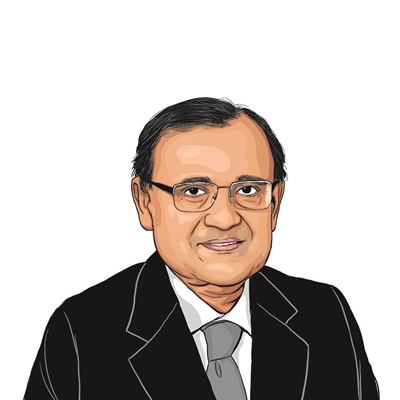The recent statement by India that Canada has a “growing reputation as a safe haven for terrorists, for extremists, and for organised crime” and that “they are being politically condoned” has brought the issue of terrorism back to the centre stage. We are now witnessing four broad, dangerous trends in international terrorism.
The first is that the global fight against terror is getting increasingly fragmented after two decades of opposing it collectively. September 11, 2001, was a defining moment in the fight against terrorism. Before 9/11, the world was divided into what I call “your terrorist” and “my terrorist”. But 9/11 proved that nobody was immune to terror and it soon became a fight against “our terrorists”. Twenty years on, we are in danger of drifting back.
The recent UN Global Terrorism Index 2023 (GTI) states clearly that “ideologically motivated terrorism continues to be the most common type of terrorism in the West” and that all of it can be attributed to far-right terrorism. For example, Europe has identified right-wing violent attacks as its main terrorist threat. The US is currently dealing with “racially/ ethnically motivated violent extremism” (REMVE).
Now, of course, the focus of the West is on the Ukraine conflict. China has also focused only on “their” terrorist threats. Its blocking of India’s attempt to list terrorists under the UNSC resolution 1267 sanctions list is an example of how Beijing’s geopolitical concerns override the global fight against terror.
But the most dangerous example of this fragmentation is Canada. It has implied that “our terrorists”, which are Khalistani terrorists on their soil, are “not their terrorists”. Ottawa is, in effect, going on the dangerous path of legitimising terrorism by not recognising it.
The second contemporary trend, geographically speaking, is that Africa has been the region where the virulence of terrorism has been increasing exponentially. The UN GTI 2023 points out that the Sahel region in sub-Saharan Africa is now what it calls the “epicentre of terrorism”, with the deaths in the region constituting 43 per cent of the global total in 2022.
Four of the 10 most impacted countries by terrorism last year were in the Sahel region, the Index says, with the deadliest terrorist groups being Islamic State (IS) and its affiliates, Al-Shabaab, Jama’at Nusrat al-Islam wal-Muslimin (JNIM), among others.
It is, therefore, no surprise that Sahel countries are already facing military takeovers and violent reactions against their former colonial masters. Geopolitics and governments are being changed in the face of rising terror attacks in Africa. The GTI 2023 also indicates that South Asia remains the region with the worst average GTI score in 2022.
The third trend relates to new and emerging technologies for terrorists’ purposes. The landmark Delhi Declaration on Countering the Use of New and Emerging Technologies for Terrorist Purposes of October 2022 brought to the fore three key areas — countering terrorist exploitation of information and communication technologies; threats posed by terrorists’ use of unmanned aerial systems (drones); and countering the financing of terrorism.
Proliferation in online activities, social media, misuse of AI, synthetic biology and 3D printing, modern fundraising, payment technologies, etc, are being used for recruitment, radicalisation and committing terror. The UN GTI Index 2023 points out that 65 non-state actors are now able to deploy drones for terror attacks, arms trafficking etc, which can be easily accessible in public marketplaces.
The fourth contemporary trend relates to the politicisation of religiophobias to justify terror. The UN and the rest of the world have traditionally condemned phobias against the three Abrahamic religions, namely anti-Semitism, Islamophobia and Christianophobia.
The use of Islamophobia as an excuse or justification to condone terror is worrying. This was evident in the way Pakistan blocked India’s amendment to the draft text of the 2023 Global Counter Terrorism Strategy (GCTS) adopted at the UN in July by threatening to introduce a reference to “Islamaphobia” in the text. This addition would have provided Islamophobia as a justification for terrorist acts. India refused to compromise and disassociated itself from the entire GCTS 2023 and charged that the “arbitrary” move to “pick and choose” was disturbing and uncalled for.
This fight against religiophobia is also selective. There has been a lack of recognition of the growing attacks and hatred against non-Abrahamic religions, including against Hindus, Sikhs and Buddhists. The continuing attacks on temples and gurdwaras, forcible conversion of minority communities in Pakistan and our neighbourhood are well known. This hatred has spread to the West, including to the US, Australia, the UK and Canada, with even the PM and the External Affairs Minister being compelled to take the issue up with their counterparts. It is far more extensive than is believed.
In Canada, three pernicious forces have come together — terrorism, Hinduphobia and separatism. As India said, Canada nurtures “politically condoned hate crimes”. This has serious implications for a multicultural, pluralistic and democratic country like India.
To address the four dangerous trends in international terrorism as well as India-Canada relations, New Delhi needs to seize the moment and make it clear to the Canadian government that it has to change its course of action. There is no better time than now to do so.
The writer is former Indian Ambassador to the UN in New York

 T S TirumurtiT S Tirumurti is former Indian Ambassador to the UN in New York… read more
T S TirumurtiT S Tirumurti is former Indian Ambassador to the UN in New York… read more
